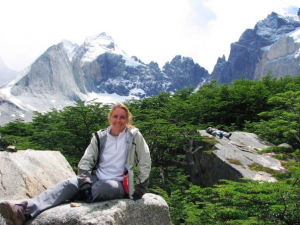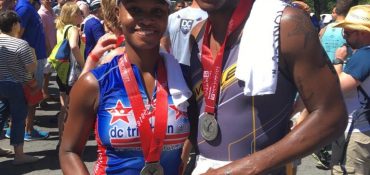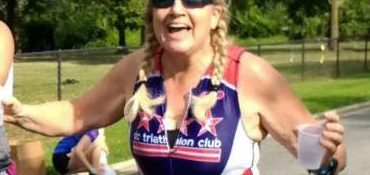2020 Member Spotlight – Alyssa Morrison
May, 2020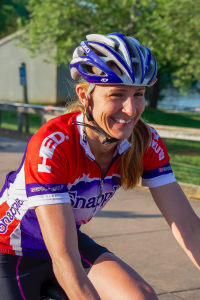

After a first career rehabbing oft-injured athletes as an occupational therapist, I made the transition into coaching to better help athletes minimize injury and have a fuller race career.
And how did you get involved with DC Tri?
After a series of running injuries myself, triathlon was the natural next challenge and the DC Tri Club was the dominant club to join. With years of experience under my belt, together with past president, Julie Kennedy, we developed the training programs to incorporate an even broader audience.
Why would one want a coach?
Coaching offers the time-crunched athlete the ability to optimize their training time and elevate their race outcomes. It takes a lot of fine-tuning to integrate three sports into one perfect harmony!
What should one look for in a coach?
Good coaching should be multi-faceted and meet your particular needs. Experience is key, not only to customize a holistic training schedule, but to also focus on the vital, little (big) things like dialing in proper heart rate targets for optimal pacing execution, integrating strength training focusing on neuromuscular activation, fine-tuning nutrition intake to minimize GI disturbance and incorporating injury prevention strategies including dynamic neuromuscular stabilization, all to optimize your training and racing tenure.
As a coach, what are some common mistakes that you see?
As triathletes, we’re good about checking the ‘workout’ box or turning Training Peaks green. However it’s the details hidden inside of the workout that are often overlooked. Not focusing on swim technique, mashing pedals, overlooking running mechanics, lack of consistency, too much too soon, pushing all workouts just a little too hard, dehydration, skimping on sleep. These not-so-sexy details are what actually make you a better athlete instead of landing you plateaued, injured or overtrained.
You’ve coached a range of athletes from triathletes to ultra-runners. Are there any similarities?
With experience, long course triathletes and ultra-runners both develop ‘endurance’ engines. Once trained, these athletes have perfected their ‘all day long’ pace and have mightily trained their stomachs. With some coaching guidance, triathletes could be looking at their next epic challenge!
What do you love about being a coach?
Coaching has offered me the opportunity to combine my education and experiences to work with the most amazing, motivated people. Endurance athletes always seek to better themselves and rise up to the next challenge. My day is never boring!
Many of us know you as a coach but you are also an athlete! Could you tell us about your background?
Although my triathlon days are behind me, I still love to run. It’s so freeing and you can go anywhere and everywhere! I grew up running and even ran at Syracuse University. These days you can find me on the trails. Ultra runners are a very fun, supportive group and we drink beer after each race. You can’t beat that recovery routine!
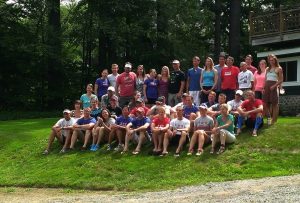 Do you have any memorable stories that you can share?
Do you have any memorable stories that you can share?
As part of the ‘old school’ DC Tri Club, one of my fondest memories was when the DC Tri Club went in force to Ironman Lake Placid. There were at least two dozen participants and at least another two dozen sherpas. With a sea of red, white and blue all over the course, the peer pressure to put one foot in front of the other towards the finish line was strong! And then there was the finish line at midnight…
Many people are having a hard time training right now. Do you have suggestions on staying motivated?
Great question! This has likely crossed all of our minds at some point. It’s really about perspective. With the race environment uncertainty, you must dig deep and unearth a different reason to train. Likely the best reason we can all relate to is keeping ourselves healthy and sane. During this time, maintaining a healthy immune system is vital and for most of us, our training schedule is one of the few things we can control in our lives right now.
In addition, now is the time to discover alternative motivating challenges. With my coached athletes, we have been identifying opportunities to address weaker areas without the stress of a big race looming like a 5k challenge to dial in optimal pacing, a marathon per month to document the open spaces available for exercise and exploring or shifting gears altogether, and training for a bucket list goal like the Rim2Rim2Rim. This season is teaching us to train for completely different reasons and some unexpected silver linings will likely emerge. Just wait and see 🙂
Many coaches as well as others in the sports community have been affected with all the race cancellations and uncertainty. How can we support them?
Covid-19 has changed the face of the 2020 race season due to the training and racing environment uncertainty. The best way to support coaches (and race directors) is to keep training! Capitalize on this opportunity to work with a coach on perfecting running biomechanics, dialing in ideal pacing execution with heart and power zone training, fine-tune your nutrition, or focus on a weaker area. I’ve been incredibly inspired by the different goals or challenges my athletes are willing to take on to maintain training motivation, keep healthy and elevate their performance. Now that is a win for everyone!
What do you enjoy outside of triathlon?
The usual outdoor therapeutic activities…hiking, camping, traveling, running trails, scuba diving, gardening. And don’t forget chocolate, wine and our fury friends!
Any fun facts about yourself that you’d like to share?
I’ve traveled to all 50 states and 105 countries. Sleeping with snakes in my bungalow in Bekopaka, Madagascar this past November just might have been foretelling me of what was to come of my near future travel plans 🙁
If you’d like to follow Coach AJ: http://multisportinmotion.com/
